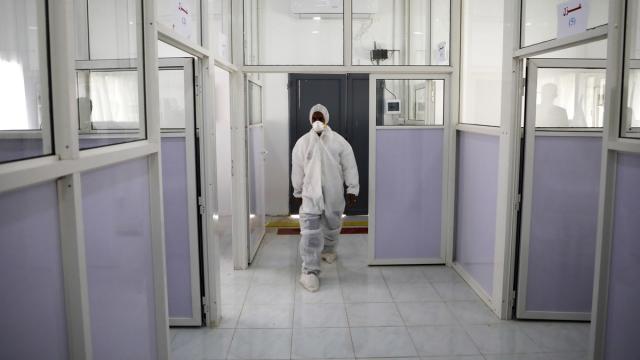Australia’s Attorney-General Christian Porter recently said Australians infected by coronavirus might need to be forcibly detained in order to slow the virus’s spread. While it sounds like a reach, the relevant legislation says it’s perfectly legal.
Australia’s infection rates of coronavirus have remained stable for a number of weeks, but with a number of countries around the world, such as Italy, Iran and South Korea, facing large outbreaks the threat of further spread is a likely possibility. It’s already happened in recent days with a number of new cases being confirmed by NSW and Queensland’s health authorities from passengers landing in the country from Iran, where a sharp increase in coronavirus infection rates has occurred.
In response, the Australia government is looking at new and unprecedented methods to further stop the spread and it could implement seldom-used biosecurity laws to force infected Australians to be quarantined.
Attorney-General Porter told ABC Radio it was “very likely” the “strange and foreign” laws would get used in the coming weeks.
“In a peak presentation period it would be likely you would have fever clinics which are designed to help people recover from the acute fever that comes with coronavirus,” Porter told ABC Radio.
“People entering and leaving those zones could be subject to requirements that are compulsive.”
So, what biosecurity laws exactly are being invoked here?
The federal law in question here is the Biosecurity Act 2015, which under Section 60, allows a ‘human biosecurity control order’ to be made if someone is showing “any signs or symptoms of the listed human disease.”
What that order could contain varies on the severity and is ultimately at the discretion of the human biosecurity officer.
It could include a self-isolation in the patient’s residence as has been the standard for most of Australia’s suspected cases. The patient may be compelled to undergo a further medical examination and placed under travel restrictions.
However, it’s Section 103 where things started to get interesting. If someone fails to comply with a control order or if they’re determined as posing “a significant risk of contagion”, a coronavirus patient can be detained by the Australia Federal Police (AFP) or state police forces.
That means a patient would be forced to head to a medical facility with a mandatory stay. Escaping that mandatory detainment prematurely could incur up to five years in jail or 300 penalty units.
[referenced url=”https://gizmodo.com.au/2020/02/phone-metadata-used-to-track-sa-coronavirus-patients/” thumb=”https://gizmodo.com.au/wp-content/uploads/2019/10/popo-410×231.jpg” title=”Phone Metadata Used To Track SA Coronavirus Patients” excerpt=”South Australian authorities have admitted to using phone metadata in order to track the movements of a couple infected with coronavirus after seeing South Korean officials do the same.”]
Is it happening already?
Porter admitted to ABC Radio the biosecurity laws had been used before but not on a scale this large. Gizmodo Australia contacted the AFP as well as state police forces to determine whether it’d been used in the field yet.
Victoria Police wouldn’t confirm whether it had already used the laws to detain anyone forcibly but told Gizmodo Australia it was monitoring the situation and providing support on an ongoing basis.
Gizmodo Australia has also contacted police forces in Queensland, NSW and South Australia to ask whether it’s a measure they’re considering at this stage. We’ll update the article when they respond.
[referenced url=”https://gizmodo.com.au/2020/03/covid-19-coronavirus-who-pandemic/” thumb=”https://gizmodo.com.au/wp-content/uploads/2020/02/covid19diagnosis-410×231.jpg” title=”Why WHO Won’t Call Coronavirus A Pandemic Yet” excerpt=”Coronavirus, or COVID-19, has been infecting thousands of people since the end of December 2019 but despite the health communities concerns about its far-reaching spread, the World Health Organisation (WHO) has resisted calls to consider it a pandemic. Here’s why.”]
